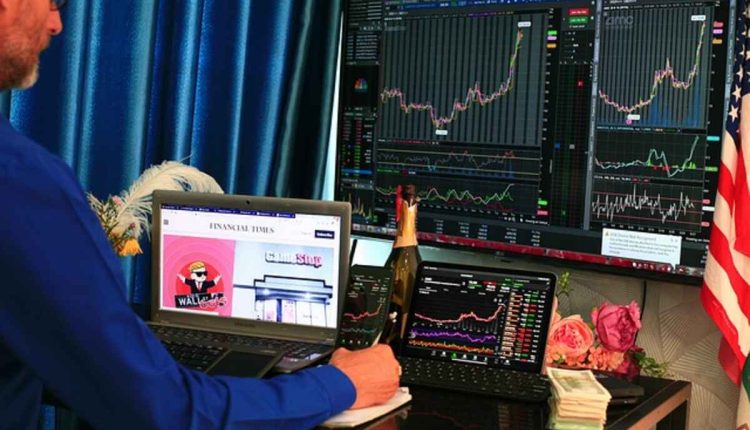Forex trading is a form of currency speculation using derivative instruments, such as contracts for difference (CFDs). It entails buying or selling currency pairs without owning their physical underlying assets directly. What do you need to consider about forex robot.
Start by identifying an essential trend on your forex chart. Then, observe how the price responds to Fibonacci retracement levels, such as 38.2% and 50% retracements.
Scalping
There are various strategies for trading forex that can help investors profit from currency fluctuations. No single approach works every time, so traders should employ various techniques when applying these five trading strategies to their assets. A sensible risk management policy must also be considered when using these techniques.
Scaling in and scaling out are money management strategies designed to adjust risk exposure and maximize profit potential for traders. Utilizing this technique allows traders to evaluate trade performance without overcommitting capital, as well as adjust position sizes based on market conditions. However, this method should only be employed after conducting extensive analysis and creating an in-depth trading plan.
Scalping is one of the most prevalent forex trading strategies. It involves profiting from small intraday price movements. Scalpers usually aim for 5-20 pips profit per trade. Though not suitable for all traders, this trading approach can prove profitable when executed correctly.
Another popular forex trading strategy is “position trading.” This long-term approach relies on fundamental factors and ignores short-term fluctuations. Successful position traders keep an eye on critical indicators, including central bank monetary policies and political developments, as well as technical indicators, to detect cyclical trends they can capitalize on.
Range trading
Range trading is a market strategy that employs price boundaries to take advantage of predictable price patterns that recur frequently in the market. It works best in markets with low volatility and can help traders enter new trends early or take advantage of any reversals. Successful range trading requires astute risk management practices, including proper stop placement and realistic profit targets.
Technical indicators allow traders to quickly identify entry points and confirm trade signals, while volume monitoring helps determine support and resistance levels. They should place stop-loss orders outside the identified range to minimize potential losses while setting profit targets either below resistance or above support, depending on personal preference.
Traders must select an asset suitable for this strategy. Currency pairs such as EUR/CHF are good candidates as they tend to exhibit range-bound behavior due to economic policies that promote stability; stock indices and commodities tend to be more volatile and are not suitable for range trading unless relative market equilibrium occurs. Furthermore, traders should monitor news events closely in order to prevent unexpected developments that might veer out of bounds and break this strategy’s boundaries.
Counter-trend strategies
Counter-trend trading strategies offer traders an effective way to profit in the Forex market by identifying potential trend reversals. These strategies utilize momentum indicators and price support/resistance levels as high-probability turning points; if a security breaks above a resistance level that had previously served as support, it could signal investor sentiment changing and lead to an upward rally in price.
Contrarian trading can be challenging for some traders. To succeed, understanding market fundamentals is key, and avoiding emotional thinking should be implemented alongside mindfulness and meditation practices to boost mental state.
Counter-trend strategies often entail taking advantage of the relationship between currency pairs and interest rates, also known as carry trade, to leverage strong trending markets while carefully managing your risk. One such popular counter-trend strategy involves taking advantage of currency pairings’ interest rate relationship by borrowing one pair to purchase another (known as carry trading). Applying this tactic must be undertaken carefully in strong trending markets with manageable risks to maximize success.
Traders using this approach may look for opportunities to sell into an uptrend and buy into a downtrend, with the risk that the prevailing trend could resume at any time; this risk can be reduced by employing proper risk management techniques like stop loss orders and altering position sizes accordingly.
Swing trading
Swing trading may be suitable if you possess both an aggressive risk tolerance and sufficient capital. It requires patience in holding onto positions for several days or weeks and allows fundamental analysis, such as trying to predict monetary policy changes or political events, which is impossible with scalping. However, keep in mind that this approach can be risky; therefore, you should only invest with money that you can afford to lose.
Swing traders specialize in exploiting price oscillations within more significant trends to generate profits from currency pairs by buying or selling when their price lands within their chosen channel. This differs from day trading, where profits must be realized in one trading session, while position trading requires taking an extended view of currency pairs that could last months or even years.
Swing traders analyze their trades using a risk/reward analysis, seeking opportunities that provide low entry costs but potentially high returns. They use moving averages to track price movements; an exponential moving average may respond more rapidly than simple moving averages to current price changes.


